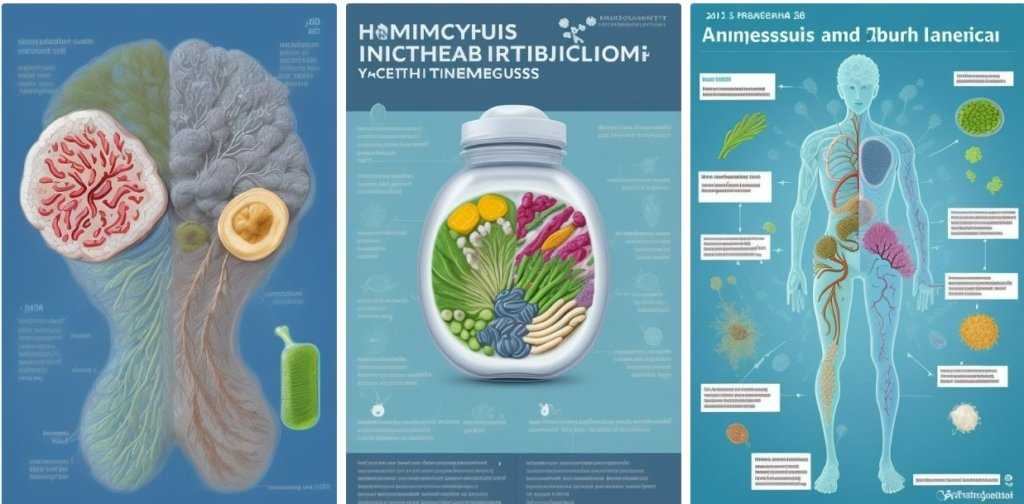The Gut-Brain Connection: How Probiotics Are Revolutionizing Mental Health

Introduction
Table of Contents
In recent years, scientific research has uncovered a fascinating link between the gut and the brain, often referred to as the “gut-brain axis.” This connection highlights the profound impact that our gut health has on our mental well-being. Central to this emerging field is the role of probiotics, live bacteria, and yeasts that are beneficial for our digestive system. This article delves into how probiotics are revolutionizing mental health, exploring the mechanisms behind this connection and the potential benefits of incorporating probiotics into our daily lives.
Understanding the Gut-Brain Axis
The gut-brain axis is a complex communication network that links the central nervous system (CNS) with the enteric nervous system (ENS), which governs the gastrointestinal tract. This bi-directional communication is facilitated through various pathways, including:
- Neural Pathways: The vagus nerve is a primary neural pathway connecting the gut and brain, allowing for direct communication.
- Hormonal Pathways: Gut bacteria can influence the production of hormones such as serotonin, which plays a key role in mood regulation.
- Immune Pathways: The gut microbiota can modulate the immune system, which in turn can affect brain function and behavior.
The Role of Probiotics in Mental Health
Probiotics are live microorganisms that, when consumed in adequate amounts, confer health benefits to the host. These benefits extend beyond digestive health, impacting mental health in several ways:
- Modulation of Neurotransmitters: Certain strains of probiotics can produce neurotransmitters such as serotonin and gamma-aminobutyric acid (GABA), which are critical for mood regulation and anxiety reduction.
- Reduction of Inflammation: Probiotics can help reduce systemic inflammation by promoting a healthy balance of gut bacteria. Chronic inflammation is linked to numerous mental health disorders, including depression and anxiety.
- Stress Response: Probiotics have been shown to influence the body’s stress response by modulating the hypothalamic-pituitary-adrenal (HPA) axis. This can lead to reduced cortisol levels, the hormone associated with stress.
- Improvement in Cognitive Function: Emerging research suggests that probiotics can enhance cognitive function and memory, possibly through their effects on gut bacteria composition and the production of short-chain fatty acids (SCFAs).
Key Probiotic Strains for Mental Health
Not all probiotics are created equal. Specific strains have been identified for their potential mental health benefits:
- Lactobacillus rhamnosus (JB-1): Known for its anxiolytic (anxiety-reducing) properties, this strain has shown promise in reducing stress-related behavior.
- Bifidobacterium longum (NCC3001): This strain has been linked to decreased symptoms of depression and anxiety in individuals with irritable bowel syndrome (IBS).
- Lactobacillus helveticus and Bifidobacterium longum: A combination of these strains has been associated with reduced psychological stress and improved mood in clinical trials.
Incorporating Probiotics into Your Routine
To harness the mental health benefits of probiotics, consider the following tips:
- Dietary Sources: Include probiotic-rich foods in your diet, such as yogurt, kefir, sauerkraut, kimchi, and miso.
- Supplements: Probiotic supplements can provide specific strains in concentrated amounts. Look for high-quality products with well-researched strains and adequate CFU (colony-forming units) counts.
- Prebiotics: Support probiotic bacteria by consuming prebiotics, which are non-digestible fibers that feed beneficial gut bacteria. Foods like garlic, onions, bananas, and asparagus are excellent sources of prebiotics.
Conclusion
The gut-brain connection underscores the profound influence that our gut health has on our mental well-being. Probiotics offer a promising avenue for improving mental health by modulating neurotransmitters, reducing inflammation, and enhancing stress response and cognitive function. By incorporating probiotics into our daily routine through diet and supplements, we can take proactive steps toward better mental health and overall well-being.
References
- Carabotti, M., Scirocco, A., Maselli, M. A., & Severi, C. (2015). The gut-brain axis: interactions between enteric microbiota, central and enteric nervous systems. Annals of Gastroenterology: Quarterly Publication of the Hellenic Society of Gastroenterology, 28(2), 203.
- Dinan, T. G., Stanton, C., & Cryan, J. F. (2013). Psychobiotics: a novel class of psychotropic. Biological Psychiatry, 74(10), 720-726.
- Messaoudi, M., Lalonde, R., Violle, N., Javelot, H., Desor, D., Nejdi, A., … & Cazaubiel, M. (2011). Assessment of psychotropic-like properties of a probiotic formulation (Lactobacillus helveticus R0052 and Bifidobacterium longum R0175) in rats and human subjects. British Journal of Nutrition, 105(5), 755-764.






Leave a Reply